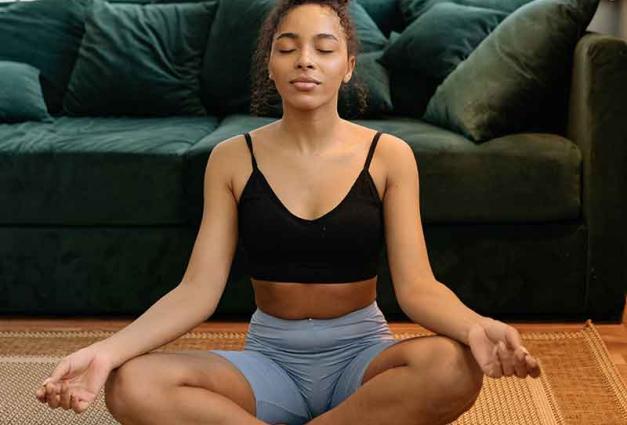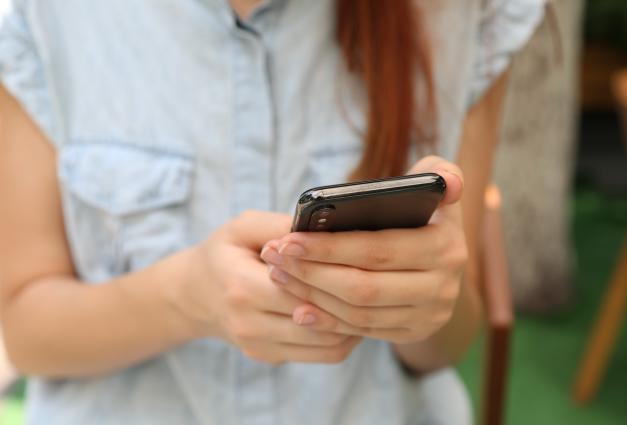As we witness the immense loss of life and trauma unfolding as a result of oppressive regimes in Palestine and Israel, it is difficult to comprehend the scale of human suffering. Those of us in more peaceful, prosperous parts of the world feel a responsibility to bear witness (at least), and those of us with marginalized identities recognize the struggle of the oppressed and stand in solidarity. While we do what we can to advocate for justice and peace for the oppressed, it is important to also take care of ourselves. As Angela Davis once said, "Anyone who is interested in making change in the world, also has to learn how to take care of herself, himself, theirselves… it means that we are able to being our entire selves into the movement… it means a holistic approach."
Here are some things to consider as you take care of yourself and others during this time of crisis:
Making Sense of Difficult Emotions
Several people I've spoken to have shared how they feel a sense of vicarious trauma, hopelessness, and powerlessness from repeated exposure to the news right now. There is also guilt about the privilege to take a step back from the news when it gets too overwhelming. These feelings are valid and normal responses – it is natural to feel empathic in the face of human suffering as we recognize the interconnectedness between different forms of oppression, and enables us to channel these emotions into action. Give yourself grace as you process difficult emotions in this moment, and engage in emotion regulation strategies—for e.g. reframing occasional unplugging from the news as self-care, while simultaneously committing to leverage your privilege to advocate for the oppressed.
Recognition of Unique Challenges Faced by Marginalized Identities
People around the world are caught in the spillover from the ongoing violence in Gaza. Those belonging to Palestinian, Arab, Jewish, and Muslim communities face unique challenges. Violence in the Israeli-Palestinian region has an effect on heightened discrimination and hate crimes in other countries, as we have seen in the last several days. Moreover, many have family in the region and belong to communities that are directly impacted by the violence—it is important to recognize the heightened mental toll that this can take for marginalized communities and extend support in whatever ways possible. Check on your friends and students, provide accommodations where needed, and make evident your commitment to supporting them through this difficult time.
Relationships and Community Support
As social psychologists, we know that spending time with friends and loved ones has a positive impact on our well-being. And in the current context, it can be incredibly healing and empowering to have interpersonal and collective spaces where we can engage in conversations about the ongoing oppression and its outcome, share how we feel, and process our emotions in a non-judgmental way.
Plan Your Joy and Self-care
At an Obama Foundation event a few years ago, Michelle Obama spoke about "planning our joy". The idea is that we're taught to plan our work, and we do this day in and day out, but we don't plan our joy, when perhaps we should. Exposure to political and global stressors can have a negative impact on well-being. By planning our joy and self-care, beyond combating burnout and preserving our own well-being, we will also be better positioned to help others in more need. These can be simple actions, like scheduling a short meditation or talking a walk in the sun. Boundaries also demonstrate self-care—whether it's a mental health day, restricting your news intake, or turning off your phone for a bit. As Audre Lorde said, "Caring for myself is not self-indulgence. It is self-preservation, and that is an act of political warfare."
Caring for Others
In this moment, many are compelled to act against the genocide and crimes against humanity by powerful regimes, because we recognize that none of us can be free and well until all of us are free and well. As you figure out your role in this collective fight and how you can leverage your privilege, here are some things to consider—educate yourself about the history of the region from unbiased sources, listen to and elevate the voices of the oppressed, and donate what you can towards humanitarian aid. There is something all of us can do, even in small, seemingly tangential ways, to move the needle towards justice and freedom for all.
Note: Special thanks to Manal Aboargob (PhD student at University of Texas at El Paso), Michelle Lee (PhD student at New York University), and Janice Lim (PhD student at York University) for sharing their insights for this article.




